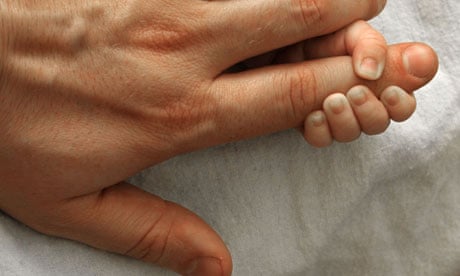

“I have had worse partings, but none that so / Gnaws at my mind still.”
So writes Cecil Day-Lewis in his poem “Walking Away”, written while watching his eldest son head off to school. If a child’s first day at school is significant, when they leave home for university can feel like an irrevocable life change for you. Knowing how to say goodbye, and dealing with the sense of loss that can follow, is part of being a parent.
The pain of separation can go far beyond simply missing your son or daughter after they’re gone. Some parents feel a very real sense of grief and loss; a lack of purpose or control.
Because having a child leave home to go to university is regarded as a measure of success – a sign that you have prepared them for the world – the downsides are often not adequately acknowledged. Parents are told dismissively to buck up, get a hobby or a cat and start seeing friends more – but “empty nest syndrome” can hard to cope with.
The weight of grief experienced can take you by surprise, and acknowledging the depth of sadness you are going through is key to accepting it.
As the charity Family Lives says: “When your children are getting ready to leave home, it can be a stressful time. Lots of your time might be taken up helping them to get ready, so try to take a few moments for yourself, just to acknowledge how you are feeling.”
A myth that surrounds empty nest syndrome is that it is only applicable to stay-at-home mothers, who have shaped their life around the nurturing of their children. In reality, it can affect any kind of parent, whether you have a separate career or not.
Lillian Little says: “I thought I would never suffer from empty nest syndrome – I’m a college professor with a PhD – I thought only pathetic women with no life beyond their kids had no problem with this.” But Little was afflicted by a sense of “life-altering loss”.
Having a job outside of the house can provide structure and distraction, but by no means immunisation. Family Lives found that so many parents experience pain at an empty nest that they set up a specific advice line for the problem.
Making a plan for the initial goodbye gives a framework and can be comforting. It’s worth sorting out the practical aspects in advance. Are you going to drop them off in their new home, or are they getting there by themselves? How will you travel, where will you park, what public transport will you use? And once you’re there, how long are you going to stay for? Resolving these issues well ahead of time means that on the day itself all the technical issues are sorted, and you “only” have the emotional aspect to cope with.
Often, though, the physical separation itself is not the hardest part. Rather, it is the daily reality of living with your child no longer at home. Inevitably, you know less about their life; where they are and what they’re doing at any given moment of the day. And worrying about their welfare can exacerbate the feelings of loneliness and loss.
Communication is key; you need to give your child space to become independent and enjoy their new life, but staying in touch and finding out how they are is healthy.
Denise Culver, an American mother with two children, believes that technology has made it much easier to cope with the transition of a child leaving home; she says that it enables us “to live much more enriched, thoroughly communicated lives with our kids”.
When her son left home to go to university, they talked daily – whether through text, email, Skype, or on the phone. “I still missed him, and he still got homesick, but it was manageable. And it made me thankful that I didn’t have to go though what my parents must have when I left for college.”
There is a wealth of helpful and sympathetic advice out there, in the form of books and counselling. You might feel embarrassed about picking up a self-help guide, but they can be a good way of helping to explore your own feelings. Alternatively, talking to friends (some of whom may also be going through the same transition) can be helpful, or there are forums like Mumsnet where you can share how you feel anonymously.
Although it may sound like a cliché, staying busy really does help. Children take up an awful lot of time, and – after giving yourself time to grieve – it is essential to fill up that now-free space with projects that mean something to you.
The most crucial thing of all is to never pass the weight of your own grief on to your child. It is absolutely fine to tell them that you miss them, or that you will be sad when they leave. But you cannot make them bear the responsibility for your own sadness and pain. It may be tempting to ask your child to stay, or cry because they are leaving you; but that will only compromise the possibility of them finding happiness and independence.
So the day itself arrives, and duvets and coat hangers and miscellaneous fancy dress items are stuffed into suitcases and bin bags, and you feel dizzy from the loss. But as well as the grief, you will also feel proud that you child is now ready to go into the world by themselves, and make their own path separately from you.
It is a sad and exciting time in equal measure, and the beginning of a new stage in your relationship with your son or daughter; by leaving, they have the chance to become more fully their own person. Day-Lewis recognised this perfectly when he ended his poem thus:
“Selfhood begins with a walking away/ And love is proved in the letting go.”